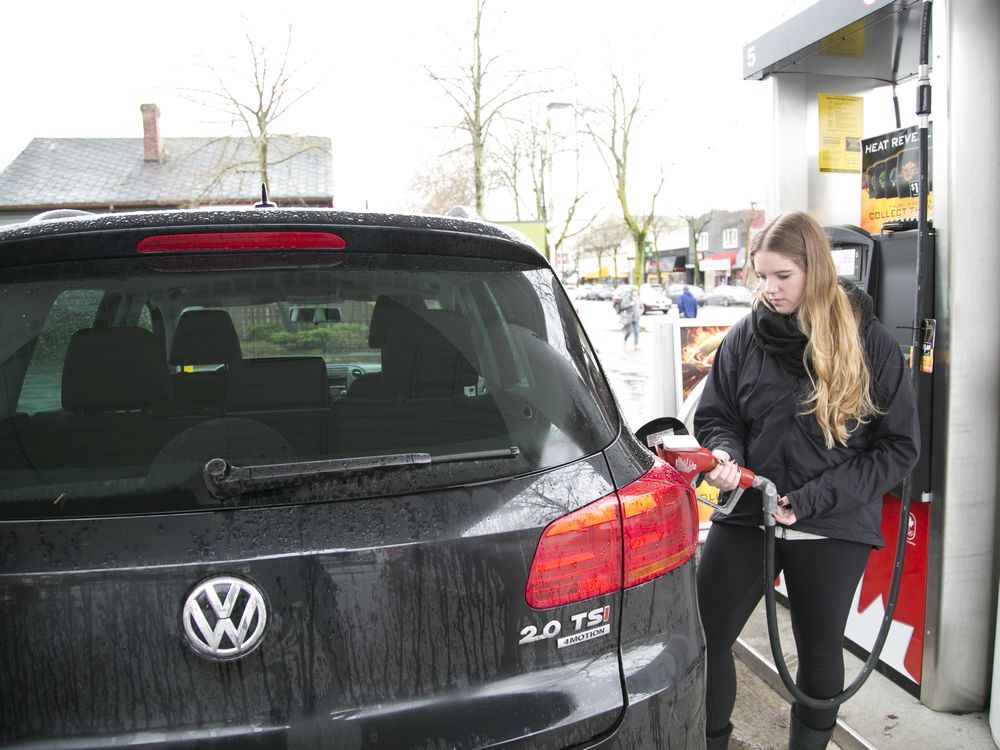Vaughn Palmer: Horgan suspects a gas gouge, but lacks facts

Credit to Author: Massey Padgham| Date: Thu, 14 Nov 2019 01:15:48 +0000
VICTORIA — Premier John Horgan didn’t hesitate to use the “g” word — and I don’t mean “gasoline” – when the B.C. Utilities Commission this week reiterated its findings about an unwarranted mark-up on prices at the pump.
“A gouge on local drivers which translates into hundreds of millions of dollars out of the pockets of the travelling public,” as Horgan summarized the results of the commission inquiry into gasoline prices.
“They did that in the summer and it highlighted about a 13-cent-a-litre increase,” said Horgan. “The industry said well we need to give you more information, so we extended the period and the conclusion is the same.”
Though the commission’s followup report largely restated earlier findings on a mark-up that it described as “not explained” and “not justified,” that still left the New Democrats groping for an explanation.
“Why are we paying 13 cents a litre more than anyone else in the country?” as Horgan put it, adding that the question remains “unanswered despite not one but two reviews.”
He, of course, made a point of ruling out taxes as any part of either the problem or the solution.
“We were seeing in some cases here in Metro Vancouver prices go up 20 cents in a weekend,” Horgan told reporters Tuesday. “Some people argued that that was all about taxes. Well, taxes weren’t going up 20 cents, in fact, since we have been in government taxes have gone up two cents on gasoline.”
Thanks to Horgan, the commission was not able to draw attention to the fact that British Columbians pay some of the highest gasoline taxes on the continent.
The New Democrats, in crafting the mandate for the inquiry, had imposed a hands-off edict: “The commission may not inquire into the effects of provincial enactments or policy on gasoline and diesel prices in B.C.”
The cabinet order forced the three-member panel of commissioners to resort to a workaround.
They factored out regulatory, transportation and other costs (including exchange rates and taxes) in reaching the conclusion that British Columbians were subjected to an unexplained markup of as much as 13 cents a litre of gasoline.
Now that the commission has twice confirmed Horgan’s suspicions about gouging, what is he going to do about it.
“We are still trying to figure out where this 13 cents goes and why is it there,” he told reporters, adding that he intends to “reinforce” the concern in an upcoming meeting with Prime Minister Justin Trudeau.
“The federal government has an ability to look at competition within markets,” said Horgan. “Clearly there is something wrong with the gas market in B.C. and we want to get to the bottom of that.”
Ottawa does indeed have that kind of power. The Canada Competition Bureau has the power to not just expose but prosecute price-fixing.
In Quebec, the bureau’s successful investigation of a conspiracy to fix gasoline prices led to charges against 39 individuals and 15 companies and fines of $4 million and prison terms totalling 54 months.
But before Horgan raises anything along those lines with the prime minister, he had better hope Trudeau has not been briefed on the BCUC findings on the question of collusion and price fixing.
Quote: “The panel finds there is no evidence to suggest that collusion among the retail operators exists nor is there evidence of cartel behaviour.”
The commissioners speculated that the daily ups and downs of gasoline pricing in B.C. could be “tacitly choreographed” by the companies. But they presented no evidence to back up the suspicion.
The competition bureau itself underscored that neither suspicions nor anecdotal evidence are enough to prove collusion to fix prices in a report posted on the inquiry website back in June.
“It is common for Canadians to suspect that gas stations are acting together illegally when, within a half an hour — and often right before a long weekend — most of the gas stations near your home raise their prices,” wrote the bureau.
“But gas prices that rise and fall in step are not in themselves evidence of price-fixing and, in fact, can actually be evidence of competition functioning as it should.
“If companies are to be prosecuted for fixing prices, we need to prove that they agreed to set those prices. Since gas prices can rise and fall more or less in unison for legitimate reasons.”
Not least because the owners of gas stations do what motorists do, which is drive around and check out prices at the competition, and adjust their own prices accordingly.
Given the dearth of evidence on the price-fixing file, Horgan would probably get further with the prime minister on another item on his agenda.
“We need more gasoline, we need less diluted bitumen — that will not move your automobile, but gasoline will,” he told reporters, referencing the BCUC finding regarding allocations in the federally owned Trans Mountain Pipeline.
Over the period covered by the inquiry, the panel found that increased shipments of heavy oil through the pipeline were crowding out refined product.
Horgan has been seeking to redress that balance, arguing greater supply of refined product ought to contribute to lower gasoline prices, all other things being equal.
In addition to exploring relief with Ottawa, the Horgan government is also preparing to table legislation next week as its own first step in tackling high gasoline prices. But that is a topic for another day.